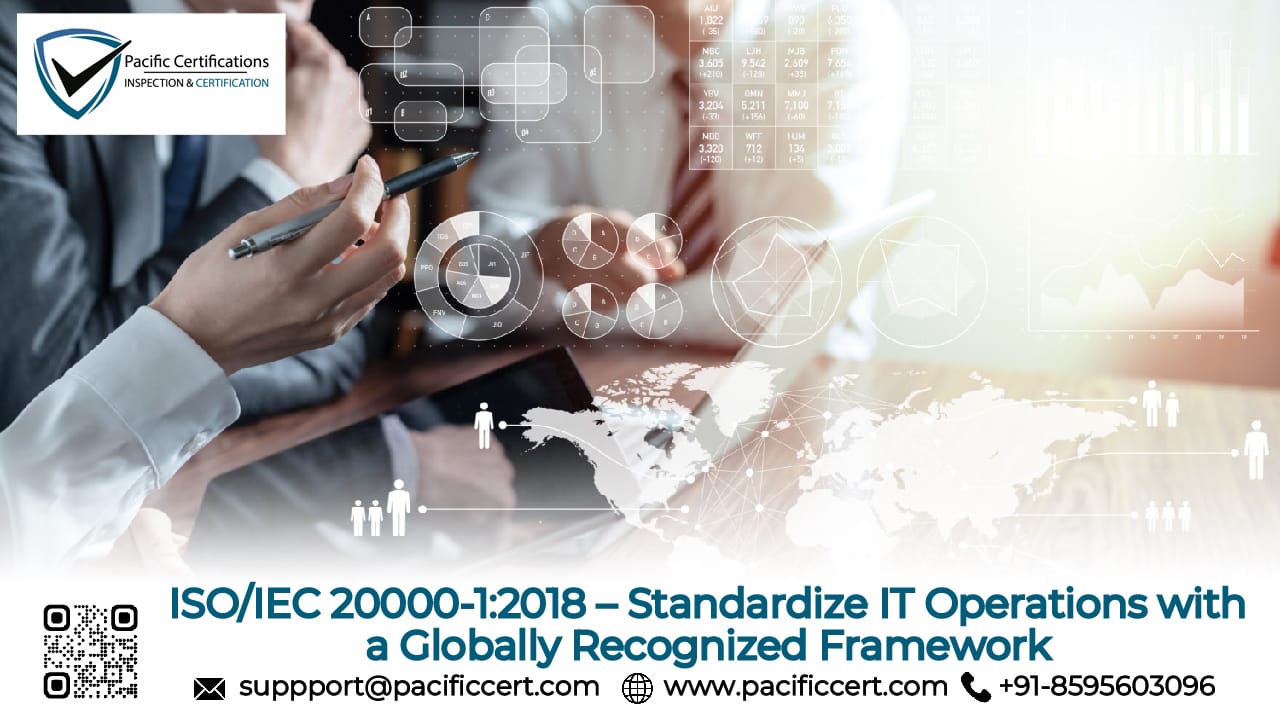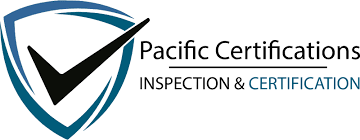ISO/IEC 20000-1:2018 – Standardize IT Operations with a Globally Recognized Framework

Quick Summary
ISO/IEC 20000-1:2018 provides a globally recognized management-system framework for IT service delivery. By implementing its requirements, organizations can build reliable, measurable and business-aligned IT-service operations that meet user expectations and contract obligations.
What is ISO/IEC 20000-1:2018?
At its core, ISO/IEC 20000-1:2018 lays out what an effective IT Service Management System should include. It isn’t a set of nice-to-have suggestions, it defines the minimum practices an organization needs to run services reliably.
The 2018 edition acknowledges how IT works today: distributed teams, multiple vendors, cloud-first deployments, frequent updates and constant pressure to remain available. Any organization that wants its IT services to run in a predictable, accountable manner can use this standard, regardless of size or industry.
IT services run smoothly only when the work behind them is structured. ISO/IEC 20000-1 helps teams replace guesswork with clarity, and firefighting with consistency
Applicable to organizations of all sizes and industries, the standard helps businesses demonstrate the quality & consistency of their IT services. For enterprises aiming to professionalize their ITSM capabilities, achieve service excellence and build client confidence, ISO 20000-1 is an asset.
To begin your ISO 20000-1 certification journey, contact Pacific Certifications at [email protected].
Why Enterprises Adopt ISO/IEC 20000-1?
Most large organizations grow their IT operations faster than they grow the structure needed to support them. This leads to inconsistent service levels and confusion about who handles what. ISO/IEC 20000-1 helps bring order to that environment.
It introduces:
• A consistent way to respond to issues
• Clear ownership for key processes
• Measurable expectations for service quality
• A routine for reviewing what’s working and what isn’t
This structure benefits not just the IT department but everyone relying on those services. With cleaner processes and better internal communication, downtime drops and teams spend less time chasing last-minute problems.
Enterprises are increasingly looking for ways to standardize IT service delivery, ensure regulatory compliance, and reduce the chaos that often comes with scaling digital operations. ISO/IEC 20000-1 provides a holistic approach to service management that covers everything from capacity and availability management to service continuity and supplier integration.
By implementing the standard, enterprises benefit from improved process consistency and a customer-centric approach to IT services. Moreover, it fosters a culture of continual improvement, encouraging teams to review, refine, and align service performance with strategic business objectives.
In environments where multiple service providers and departments interact, ISO/IEC 20000-1 also improves interoperability and communication, making it easier to deliver seamless, end-to-end services.
Pacific Certifications works with enterprises worldwide to help build compliant and performance-oriented service management systems. Reach us at [email protected].
ITIL vs ISO 20000-1: Do you need both?
Many organizations evaluating service management frameworks ask whether they should choose ITIL or ISO/IEC 20000-1. The answer lies in understanding their purpose and structure.
Many companies compare ITIL with ISO/IEC 20000-1 because both deal with service management. But they serve different purposes.
ITIL is guidance. It explains ways to manage IT services and offers helpful practices, especially if you're starting to formalize your ITSM function.
ISO/IEC 20000-1 is a formal requirement. It establishes what must exist documented processes, responsibilities, controls, governance, and confirms through an audit whether these are used consistently.
Many organizations use ITIL concepts to shape their processes and ISO/IEC 20000-1 to validate that those processes are actually being followed. It’s not an either-or choice; the two often complement each other.
Not sure which path fits your goals? Pacific Certifications can help, contact us at [email protected].
Why ISO/IEC 20000-1 Matters for MSPs?
For Managed Service Providers, consistency and trust decide whether clients stay or leave. Clients want more than technical competence, they want assurance that the provider has its processes under control.
ISO/IEC 20000-1 helps MSPs:
• Bring uniformity across multi-tenant environments
• Demonstrate accountability in incident handling and SLA tracking
• Reduce operational risks by having repeatable ways of working
• Strengthen their position when competing for enterprise contracts
Many MSPs use the certification as a proof point during tenders, especially with corporate or government clients who expect documented governance, not ad-hoc operations.
By achieving ISO/IEC 20000-1 certification, MSPs demonstrate commitment to service excellence and transparency, making it a worthwhile investment. To explore ISO 20000-1 for your MSP, request a free consultation from Pacific Certifications at [email protected].
How Organizations Typically Implement ISO/IEC 20000-1?
Implementation requires clarity, discipline and documentation. Most organizations follow a sequence like this:
• Decide what part of the business the certification will cover
• Get leadership approval so teams have the time and resources they need
• Compare current practices with the standard and note the gaps
• Write or update procedures for incident, change, problem and configuration management
• Train people on how these processes work
• Define KPIs so performance is measurable
• Conduct internal audits and management reviews
• Undergo Stage 1 and Stage 2 audits with an accredited certification body
• Keep reviewing and improving the system after certification
To guide you through each of these steps and audit support, contact Pacific Certifications at [email protected].
Building Better, More Predictable IT Services
Organizations that adopt ISO/IEC 20000-1 usually do it for one reason: they want IT services that can scale without chaos. A documented and well-maintained SMS helps reduce last-minute failures, strengthens customer trust and brings teams onto the same page.
Whether you're an internal IT department, a digital business or an MSP, the standard offers practical structure, something most growing IT environments eventually realize they need.
Practical Tip
If you're just starting out, focus on getting your top five processes documented and working: incident, problem, change, configuration and service level management. These form the backbone of the SMS. Once these are steady, expanding into the remaining processes becomes much easier and smoother.
Pacific Certifications is an accredited certification body supporting businesses across industries in achieving ISO 20000-1 certification. Our audits and assessments are tailored to the unique challenges of IT teams, MSPs, and cloud-driven operations.
Ready to get ISO/IEC 20000-1:2018 certified?
Contact Pacific Certifications to begin your certification journey today!
Suggested Certifications:
Author: Alina
Read more: Pacific Blogs

